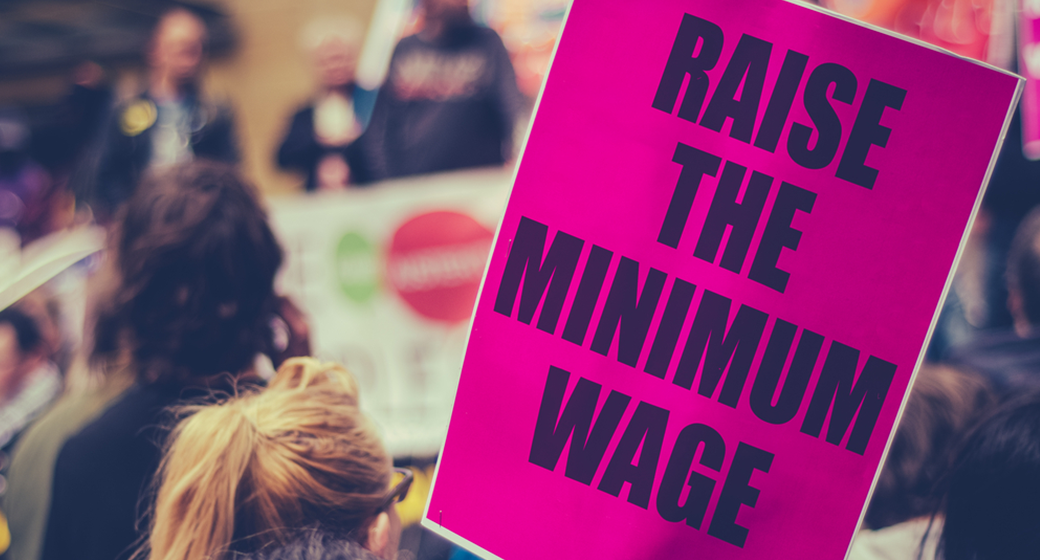
-
Posted By Sirmabekian
-
2024
-
0 Comments
The recent increase in minimum wage California for fast food workers and school staff is set to bring significant changes and challenges. This increase aims to improve the living standards of low-income workers but may also lead to conflicts between various stakeholders, including educational institutions and the fast food industry. This blog post reveals the potential implications and areas of contention resulting from this wage hike.
About the Minimum Wage Increase
- New Wage Laws for Fast Food Workers
California has recently implemented a new minimum wage law that significantly raises the pay for fast food workers to $20 per hour starting in 2024 (previously $14-$15 an hour in 2022). This increase aims to address wage disparities and improve the quality of life for workers in the fast food industry, who have historically been among the lowest-paid sectors.
- Impact on School Workers
In addition to fast food workers, the new law also includes a wage increase for school staff, such as cafeteria workers and janitors, who often earn minimum wage. This change is intended to help school employees better meet their financial needs and reduce turnover rates, which can affect school operations and student services.
Potential Clashes Between Stakeholders
- Financial Strain on Schools
Public schools, already operating under tight budgets, may struggle to accommodate the increased wage requirements. Schools rely heavily on state funding and local taxes, and the wage hike could force them to reallocate funds, potentially leading to cuts in other areas like extracurricular activities or educational resources. This financial pressure might prompt schools to seek additional funding or make difficult budgetary decisions.
- Fast Food Industry Response
The fast food industry is also likely to feel the impact of the wage increase. Many fast food businesses operate on slim profit margins, and a significant wage hike could lead to increased prices for consumers, reduced hiring, or even closures of marginally profitable locations. Industry leaders may lobby for policy changes or seek ways to automate processes to reduce labor costs.
Competition for Workers
The wage increase might lead to competition for workers between schools and the fast food industry. As wages in both sectors rise, employees might shift from one sector to the other depending on benefits, working conditions, and opportunities for advancement. This could exacerbate staffing challenges in schools, which are already struggling to fill low-wage positions.
Legal and Economic Implications
- Compliance with New Laws
Both schools and fast food employers must comply with the new minimum wage laws, which may involve updating payroll systems and ensuring all employees receive the correct pay. Failure to comply could result in legal penalties and fines, adding to the financial burden on these institutions.
- Economic Ripple Effects
The increase in wages is expected to have broader economic effects, including higher consumer prices and potential job losses in sectors heavily reliant on low-wage labor. However, proponents argue that the wage increase will boost the economy by increasing consumer spending power and reducing poverty levels among workers.
Social and Community Impact
- Improved Quality of Life
For many workers, the wage increase represents a significant improvement in their quality of life, providing them with more financial stability and the ability to afford basic necessities. This could lead to better health outcomes, improved educational opportunities for their children, and greater overall well-being.
- Community Support and Opposition
While the wage increase has garnered support from labor advocates and community organizations, it has also faced opposition from business groups concerned about the economic impact. This divide may lead to ongoing debates and policy discussions about the best ways to support low-wage workers while balancing the needs of businesses and public institutions.
Navigating the New Wage Landscape
- Strategies for Schools and Businesses
Schools and fast food businesses will need to develop strategies to adapt to the new wage requirements. This may involve seeking additional funding, improving operational efficiency, and exploring ways to enhance employee retention and satisfaction to mitigate the impact of increased labor costs.
- Seeking Legal and Financial Advice
Both sectors should consider consulting with legal and financial experts to ensure compliance with the new laws and to explore ways to manage the financial impact. Legal employment guidance can help navigate the complexities of labor laws and avoid potential penalties for non-compliance.
Get Legal Guidance from Our Expert Lawyers
Are you a business owner or school administrator grappling with the impact of California’s new minimum wage laws? Sirmabekian Law Firm is at your service. Our seasoned attorneys specialize in employment law, particularly in matters related to minimum wage. Count on us to provide the guidance necessary to navigate these changes seamlessly. Reach out today for a complimentary consultation, and discover
 English
English Spanish
Spanish